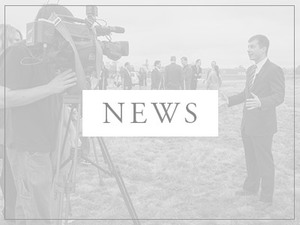 "
"
In less than 100 years, Notre Dame went from violently clashing with an anti-Catholic Ku Klux Klan to seeing one of its own appointed to the Supreme Court. The evolution of Catholics’ role in American politics has been “one of the most dramatic changes in American political life over the last, say, 50 years,” said David Campbell, Notre Dame professor of political science. Campbell is the author of several books examining the role of religion in American politics. The appointment of Amy Coney Barrett to the Supreme Court, Campbell said, is just another iteration of a decades-long trend. Over the past several decades, American Catholics have overcome barriers and cultural exclusion, Campbell said. A swath of conservative Catholics has led a new, powerful movement — the religious right — to a prominent role in American politics. Scholastic spoke with Campbell to learn how this transformation developed. The following conversation has been edited for length and clarity.
How did American Catholics assimilate into the mainstream over the course of the 20th Century?
What we once had in America was actually de facto segregation between Catholics and Protestants. They just didn't interact very much. That began to change partly because of reforms that came from Vatican II. So that's the '60s. But even before that, as more Americans moved to the suburbs, as general prosperity rose, you found more mingling between Catholics and Protestants. And of course, the high point of that was the election of John F. Kennedy.
Today, conservative Catholics and white evangelicals are often a political coalition. How did that come about?
Well, that came about with the rise of the religious right, which was largely a reaction to many social changes that took place in the 1960s and ‘70s. That includes abortion, but it's not only abortion. So women's rights were a part of that, LGBTQ rights ... All of that was sort of a bundle of things that led to this reaction, and the formation of the religious right, which was an alliance between evangelical Protestants on the one hand, and — not all Catholics — but a significant portion of the American Catholic population. The religious right movement is largely associated with evangelical Protestants, and by that I mean, white evangelical Protestants. But conservative Catholics have always been a part of that, too. In fact, some of the more prominent people who've been spokespeople for the religious right have actually been Catholics.
How have Catholics taken a prominent role in advancing the agenda of the religious right?
We currently have no Protestants on the Supreme Court. And that was true even before Amy Barrett's nomination, so all of the justices are either Catholic or Jewish. That is a stunning development. The rise of the religious right has led to an ecosystem of conservative thought. So you find that among legal scholars, but not only legal scholars — scholars have other types too. And many of the leading people in that school of thought have turned out to be Catholic. Now, why exactly that is? That's a fascinating question. I don't think we have a single answer for it. But it certainly does speak to the development of a sort of Catholic perspective on the law and a Catholic perspective on social policy that many evangelicals are happy to sign on to and they agree with, but it's really been led by Catholics. And Amy Coney Barrett is a product of that system.
Have prominent Catholic universities, Notre Dame among them, helped propel Catholics to that influential role in the ecosystem of conservative thought?
Aspiring white evangelical Protestants didn't have their equivalent of the Georgetown or the Notre Dame to attend. Plus, when you even put aside Catholic institutions, Catholics actually, somewhat ironically, have assimilated more — if you want to use that term — more fully incorporated into mainstream academia. So lots of Catholics at Harvard and Yale and Princeton and Stanford and schools like that, too. Not that you wouldn't find evangelicals, but they were less likely to be found in those places.
Aside from the national trends you described, how did Notre Dame specifically assimilate into the mainstream as an institution? Why is Notre Dame famous and Marquette not?
Well, I would say it's because of Knute Rockne and all of the mythology associated with Notre Dame football. Initially, Notre Dame is the Catholic football powerhouse. But then that begins to change. And they just become one of the prominent football programs in the country. And here in Indiana, they become the football team — with apologies to Purdue but let's face it, Purdue was never Notre Dame. And I think that helped a lot within the community, because that then led to Notre Dame being a major tourist draw and an economic driver in the community that it wouldn't have been when it was just a small college. If you think of all the patriotic things that are done before they actually play the football game, in the stadium, that's all a vestige of an era when American Catholics were trying to establish themselves as part of the American mainstream, they were seeking full acceptance. And all of the rituals that go along with a Notre Dame football game are a part of that. They're a vestige of that. That isn't a concern anymore. But, you know, you do anything twice at Notre Dame, that's a tradition. They're never going to stop. They keep doing it.